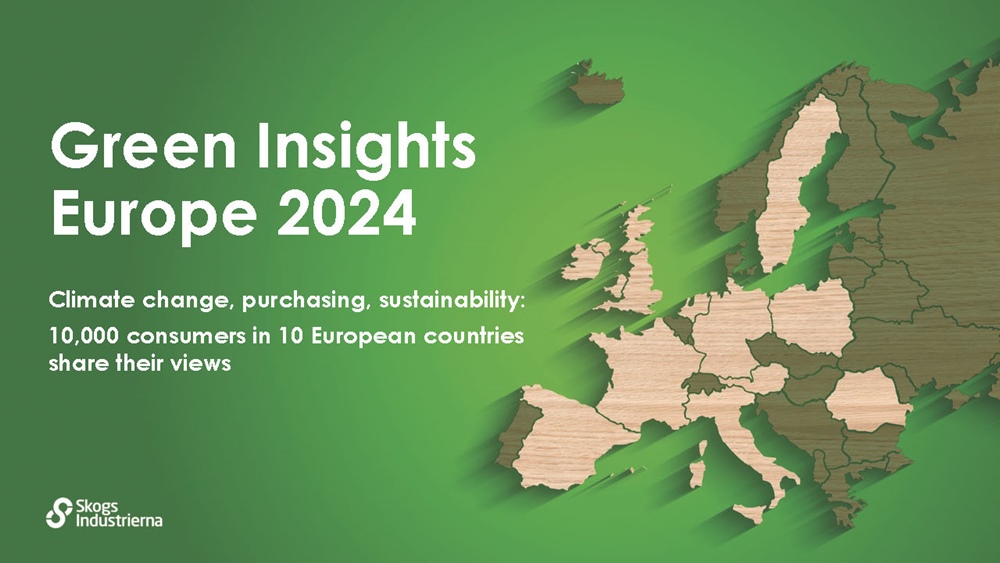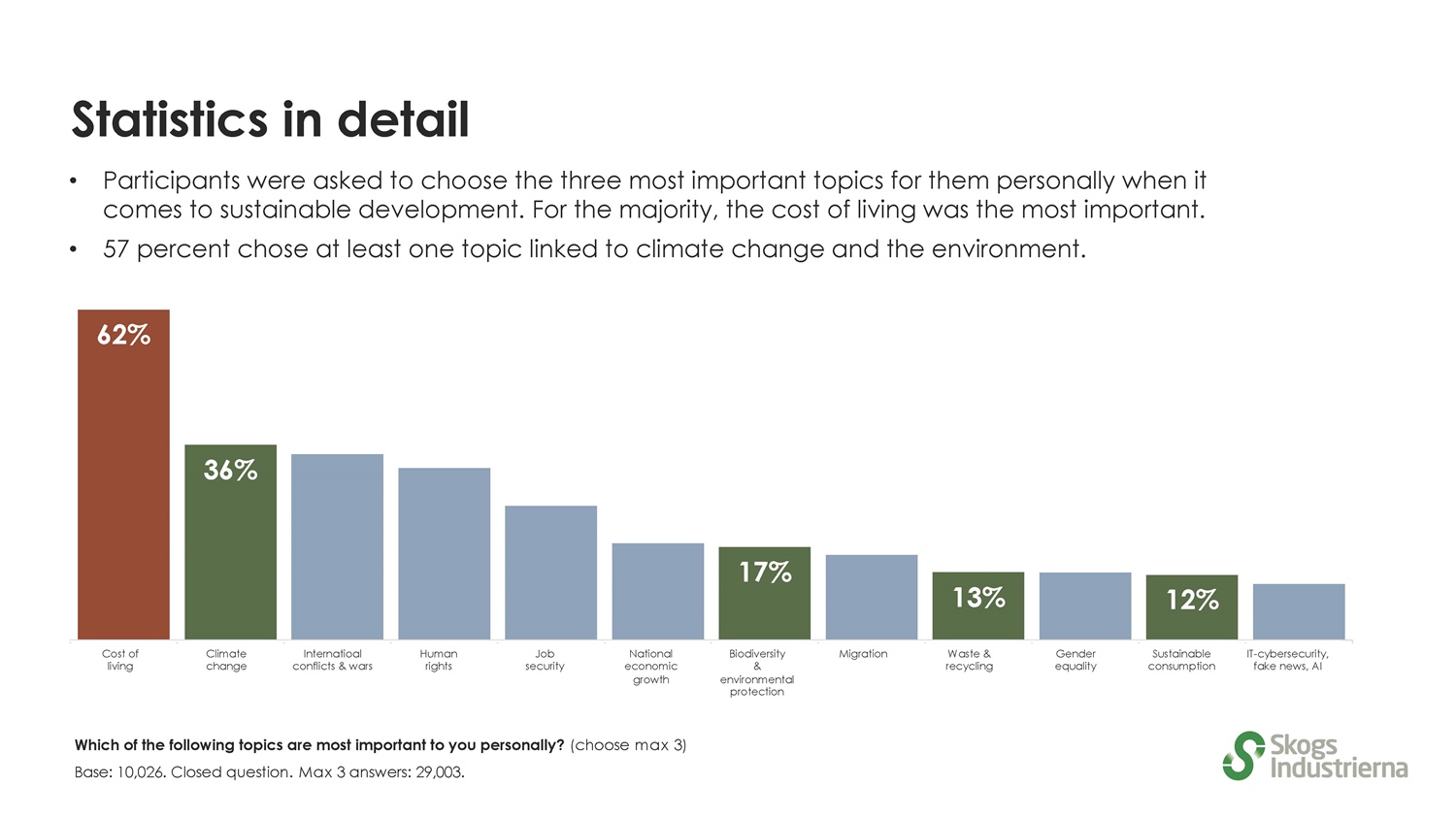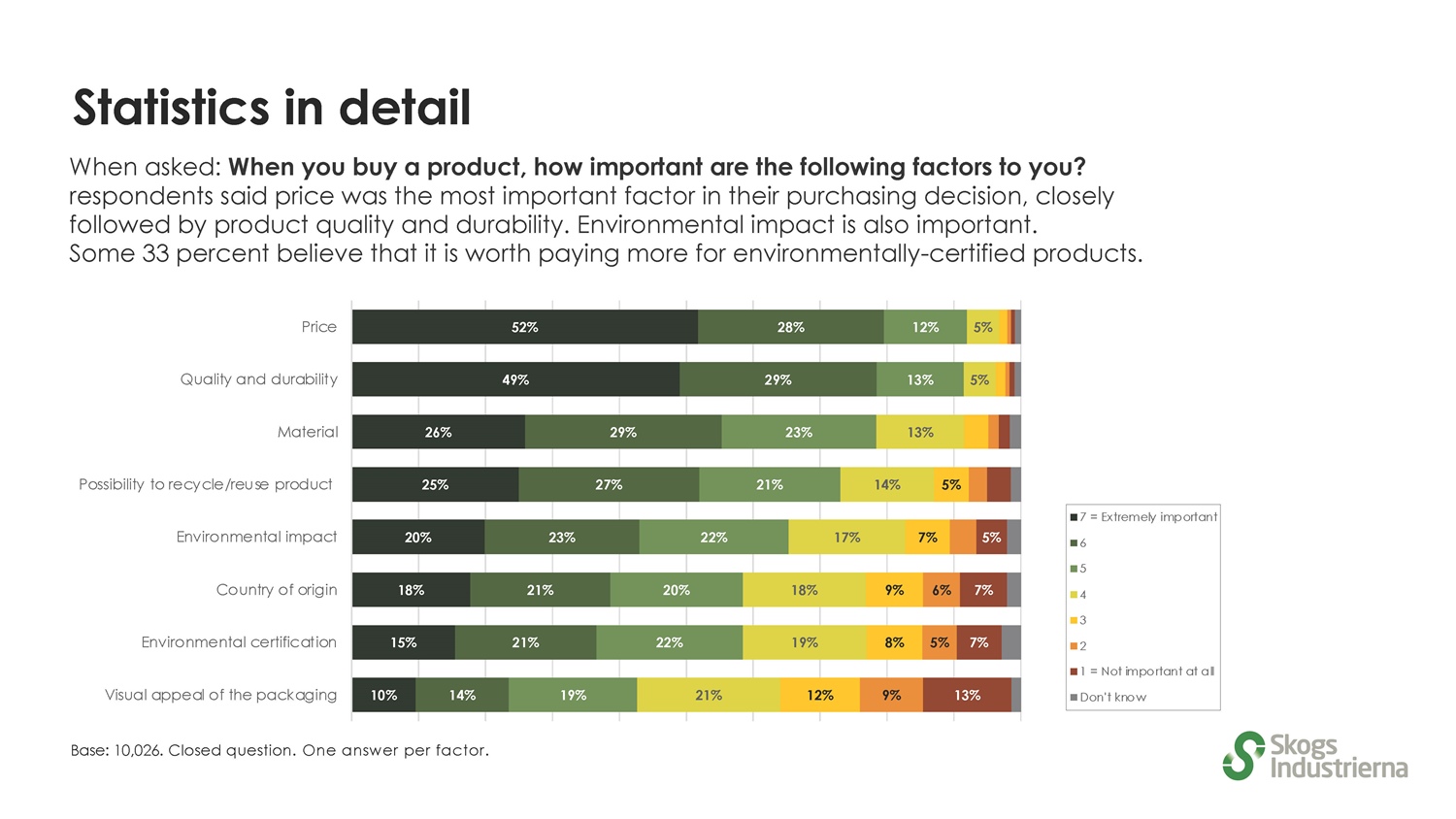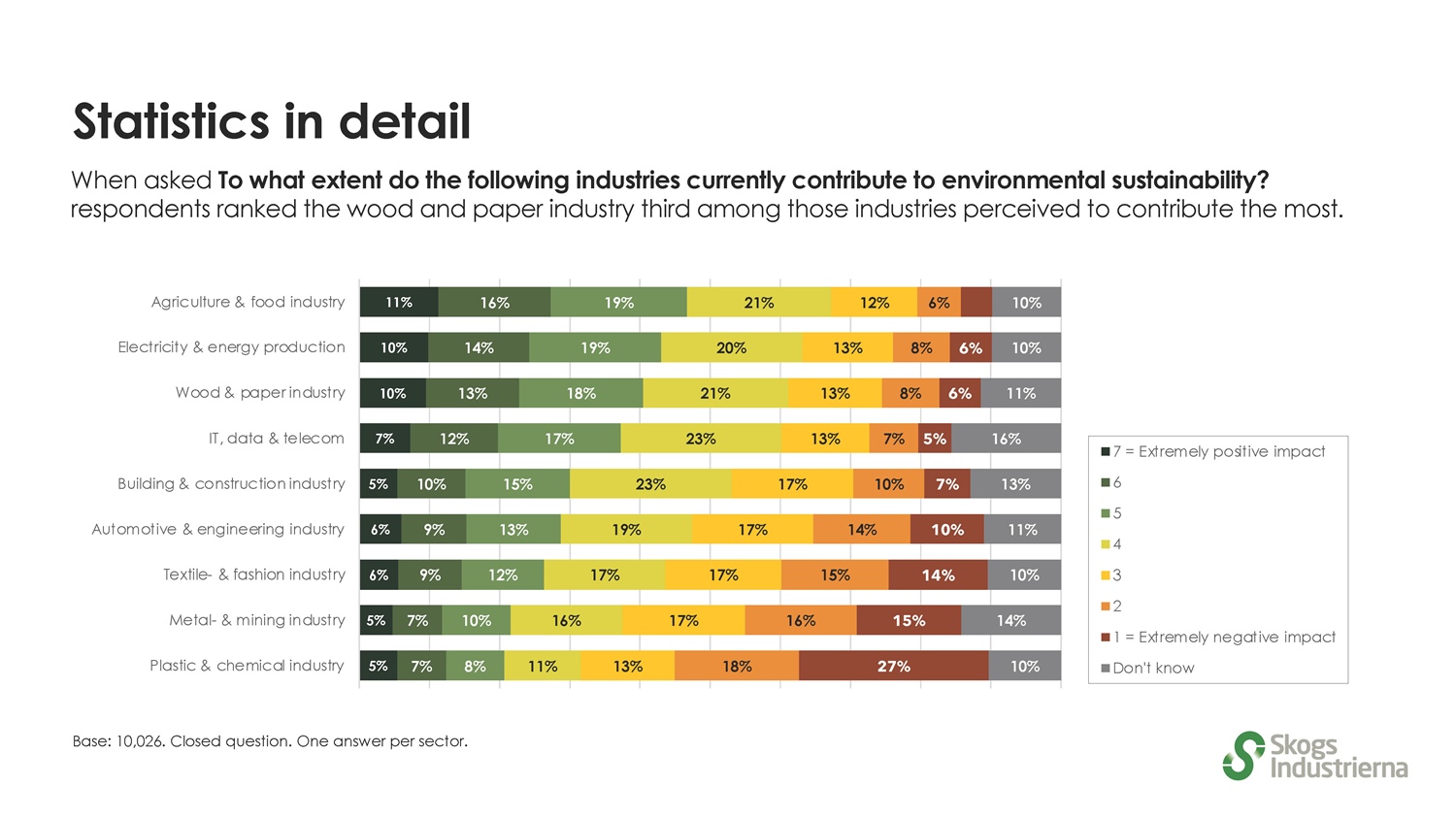P3 5-6/2024 en
Study
Consumers Have Spoken. Time to Listen
Point of View

In a recent study for Skogsindustrierna, the Swedish Forest Industries Federation and industry specialists Opticom discovered that Europe’s consumers really believe in the Green transition, but they don’t want to pay for it, especially in times of economic hardship – and they don’t understand the forest industry’s potential to help society get there.
Green Insights Europe: 10,000 consumers in 10 European countries share their views.
A few months ago, Opticom spoke to more than 10,000 European consumers on behalf of the Swedish Forest Industries Federation, to examine their perceptions on climate, purchases, carbon capture and forest resources. The countries in the survey together account for 78 per cent of the EU’s population, plus the UK.
Some results were positive, but not all. In brief:
- Consumer concern about climate change remains high, as does public support for the green transition.
- BUT: Consumers do not want to pay for environmental progress, especially when times are tough. The current cost of living trumps the environment as a top concern.
- Only a third believe a premium is justified for products with environmental credentials.
- The green transition must therefore go hand in hand with social and economic welfare support.
- Europe’s consumers think highly of the forest industry when it comes to C02 emissions and support forests as a source of material for renewable products.
- BUT: Most still believe European forests are diminishing (the opposite is true).
- Most do not understand carbon storage and believe CO2 leaves a tree when harvested.
- Action needed:
- Align climate and welfare goals,
- Educate the consumer to make informed choices,
- Harness public support for forest-based solutions,
- Clarify public misconceptions,
- Champion the sector’s carbon capture.
Opticom founding partner and CEO, Mikael Selling, says it’s great that consumers care deeply about climate change and support the transition to a green economy - they want to see renewable products replace fossil-based which is good news for the industry. Some 74% believe that it is important to switch from fossil-based to bio-based products to meet UN sustainability goals. The Swedes are most positive about the climate benefits of bio-based products – with 56% believing that such products have a positive impact.
“Tough economic conditions combined with global climate challenges underline the importance of the EU focusing on both sustainability and competitiveness. I am convinced that countries and regions that use their resource advantages sustainably will be able to cope with climate change and build prosperity. Through forest-based products, the EU have excellent opportunities going forward to develop a circular bio-based economy,” says Viveka Beckeman, Director General of the Swedish Forest Industries Federation.
However, says Selling, rather more challenging is the news that consumers don’t want to pay for more sustainable alternatives, especially during times of economic hardship. And despite improved efforts from forest product companies to communicate the potential and green credentials of the sector, consumer understanding of working forests is still very low.
“Consumers strongly support replacing fossil-based products with more sustainable alternatives, but there’s a paradox here,” says Selling. “While they would like to see everything from textiles and plastics to cement and fuels replaced with renewable sources, a staggering 65% of the people we spoke to believe that Europe’s forests have shrunk significantly or somewhat in the last 10 years (the opposite is true). Only 23% of respondents know that products made of wood continue to store carbon throughout their lifetime. Where will the raw material for their green wish-list come from if not the forest? This paradox needs to be addressed.
“Consumers need to realise that the forest products sector is growing not shrinking the forest. They also need to understand carbon capture and storage – most believe a tree stops storing carbon the minute it is felled, unaware that carbon continues to be locked into a wood product.”
Selling continues: “This knowledge gap is not just an industry issue: the sector’s branding problem affects the entire value chain, from printers and fashion houses to construction companies and retailers. Everyone in this substantial value chain shares both challenge and opportunity here, and all need to start working together to communicate the unique potential of the forest products industry when it comes to green credentials.”
“We know that consumers are driven by emotion. Their behaviour can be complex with numerous factors influencing purchasing decisions. A business that understands what and how the consumer thinks is more likely to meet their needs. This is especially true when it comes to sustainability. Consumers have spoken. Now it’s time to work together and listen to what they’re saying, the sooner the better.”
Survey details
The survey was conducted among 10,000 people in 10 European countries. Various background variables such as gender, age, family status, place of residence, education and employment were considered to ensure as representative a cross-section of the inhabitants of these countries as possible. The survey was conducted in online panels in the autumn of 2023. The countries in the survey together account for 78 per cent of the EU’s population. Its demographic coverage was further broadened with the inclusion of the UK.
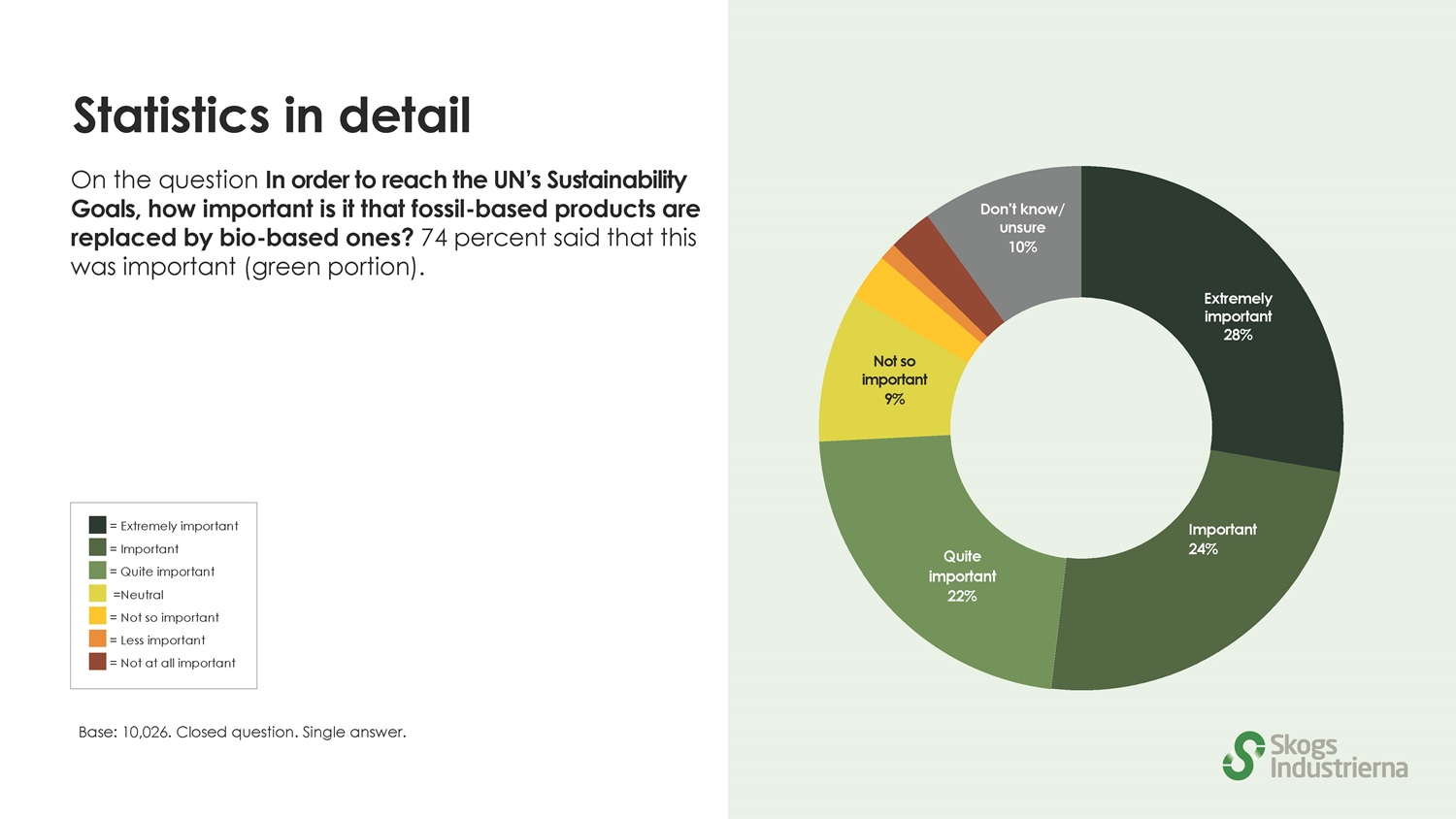
In order to reach the UN’s Sustainability Goals, how important is it that fossil-based products are replaced by bio-based ones?
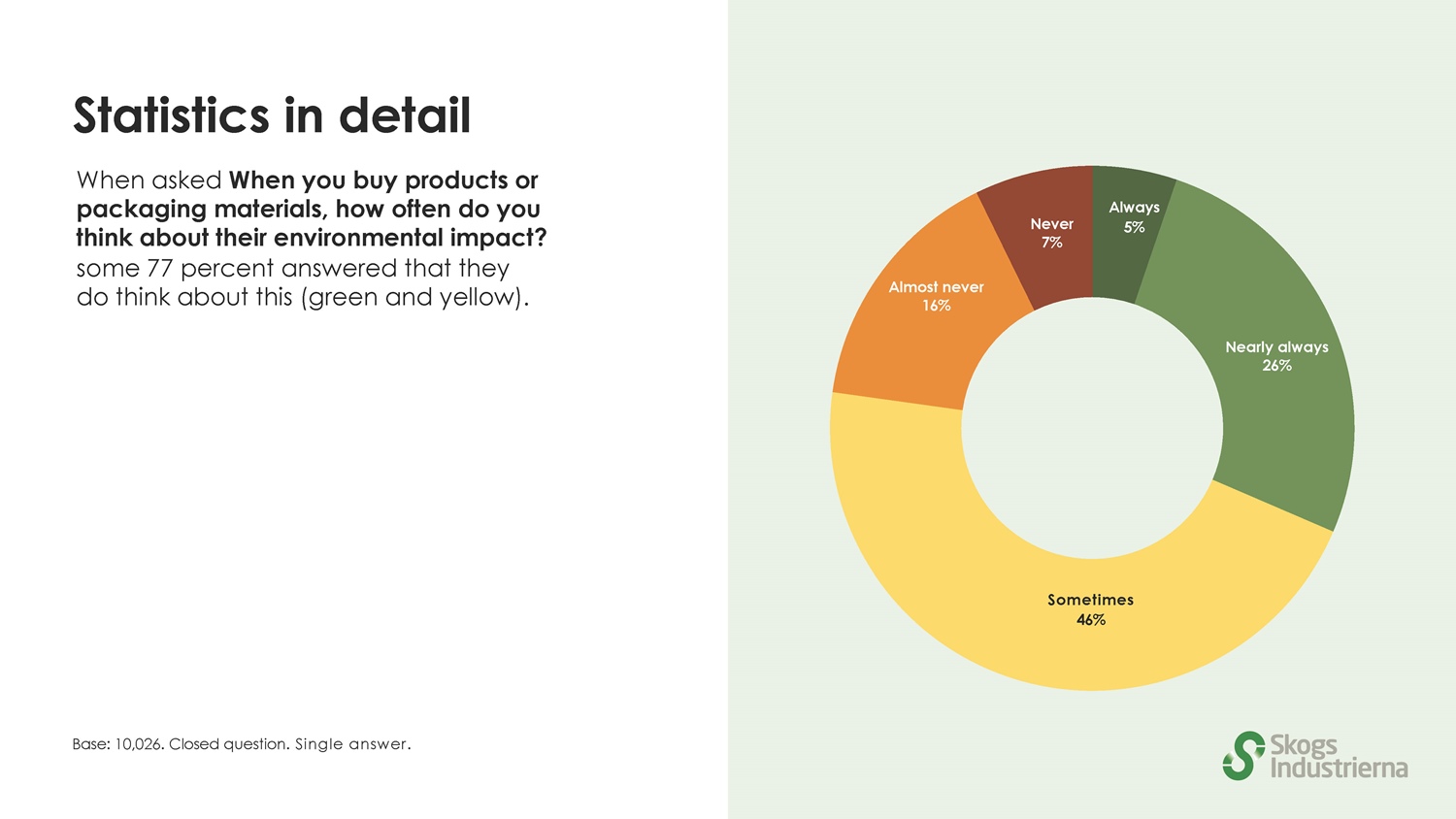
When you buy products or packaging materials, how often do you think about their environmental impact?
Editor: sbr
Images: Skogs Industrierna / Opticom






